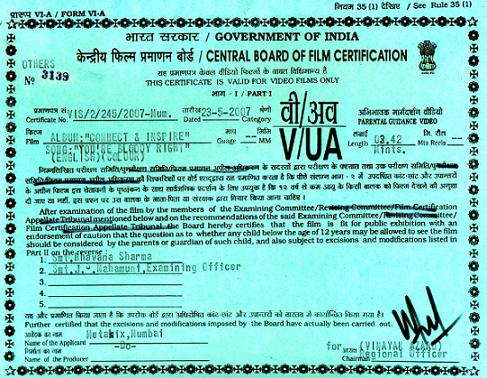Bombay, 1946: Amidst the freedom struggle against the British Empire and the forewarning of India being partitioned, Saadat Hasan Manto, a well-established short story writer works in the glittering world of the Bombay film industry as a scriptwriter. Although Manto has a tenuous relationship with the Progressive Writers’ Association, many of its members are his close friends, including the feminist writer, Ismat Chughtai. They are both acquitted from the charge of obscenity for their respective works. Manto has many admirers and friends in the film industry. The closest is Shyam Chadda, a charming budding actor and Ashok Kumar, a famous actor, director and producer. But, his biggest supporter and the unwavering pillar of strength is his wife, Safia. Soon after, India gains independence on 15 August 1947 and the new nation of Pakistan is born. Safia leaves for Lahore to attend her sister's wedding. Despite flaring Hindu-Muslim tensions, Manto decides to stay back in his beloved city of Bombay. One day, Shyam, on hearing that his family was forced to flee Pakistan because of a Muslim mob attack, tells Manto in anger: "I could have even killed you." Shocked and anguished, a non-practicing Muslim, Manto suddenly becomes conscious of his religious identity and the vulnerabilities that come with it. He impulsively makes the unimaginable decision of moving to Pakistan. Lahore, 1948: A melancholic city full of refugees, forsaken property, and burnt buildings becomes Manto's new home. He is left grappling with a growing sense of isolation and a deep sense of betrayal. As he struggles to come to terms with his new reality, he spirals into a state of perpetual drunkenness. Though Safia continues to stand by him, their marriage begins to feel the strain. Relentless and long-drawn court trials alleging obscenity in his story Thanda Gosht (literal meaning: Cold Meat) take a severe toll on his health and finances. His statement in defense of literature and free speech is met with a conviction. Despite this, he continues to pen some of his sharpest and most courageous works. His compulsions to write and drink are in direct conflict with his desire to see his family - wife and two daughters, happy and secure. His failing health makes him hallucinate. Unable to see his family suffer any longer, he finally admits himself into the alcohol rehabilitation center in Lahore Mental Hospital. The main narrative is seamlessly interspersed with five of his poignant stories. The last one being his most famous story - Toba Tek Singh. Manto begins the story with, "two or three years after Partition, it occurred to the governments of India and Pakistan to exchange their lunatics like they had exchanged their criminals. The Muslim lunatics in India were to be sent to Pakistan and the Hindu lunatics in Pakistani asylums were to be handed over to India." The Sikh protagonist, who has vowed to remain standing until he finds his village, lies in death in no-man's land, between the two nations. Manto's predicament is not too different.
मंटो
Manto
Details
Mis Spell Name
- Manato
Genre
- Drama
Production House
- Viacom 18 Motion Pictures
Producer
- Ajit Andhare, Namrata Dehal, Nandita Das
Director
- Nandita Das
Composer
- Sneha Khanwalkar, Raftaar
Censor Date
- 31/08/2018
Censor Year
- 2018
Released date
- 21/09/2018
Released Year
- 2018
Censor Board Details (Central Board of Film Certification)

Certificate No :
- DIL/2/293/2018-MUM
Certificate Date :
- 31/08/2018
Office :
- Mumbai
Guage :
- -
Length :
- 10026 Feet 3342 Meters
Duration :
- 116 Minutes
Reels :
- 11
Color :
- Coloured
Native Language :
- Hindi
Dubbed Languages:
- Another Language
- Producer : Ajit Andhare , Namrata Dehal , Nandita Das
- Director : Nandita Das
- Writer : Nandita Das
- Screenwriter- screenplay : Nandita Das
- Dialog Writer : Nandita Das
- Editor : Nandita Das
- Composer : Sneha Khanwalkar , Raftaar
- Lyricist : Dibakar Banerjee , Sneha Khanwalkar , Meeraji , Faiz Ahmed Faiz , Raftaar , Saadat Hasan Manto
- Actor : Nawazuddin Siddiqui , Tahir Raj Bhasin
- Actress : Rasika Duggal , Rajshri Deshpande
- Track 1 : Ban Titli (Gratis) ( बान तितली (मुफ्त) )
- Track 2 : Ab Kya Bataun ( अब क्या बताउँ )
- Track 3 : Nagri Nagri ( नगरी नगरी )
- Track 4 : Bol Ke Lab Azaad Hain ( बोल के लब आज़ाद हैं )
- Track 5 : Mantoiyat ( मंटोइयाती )


